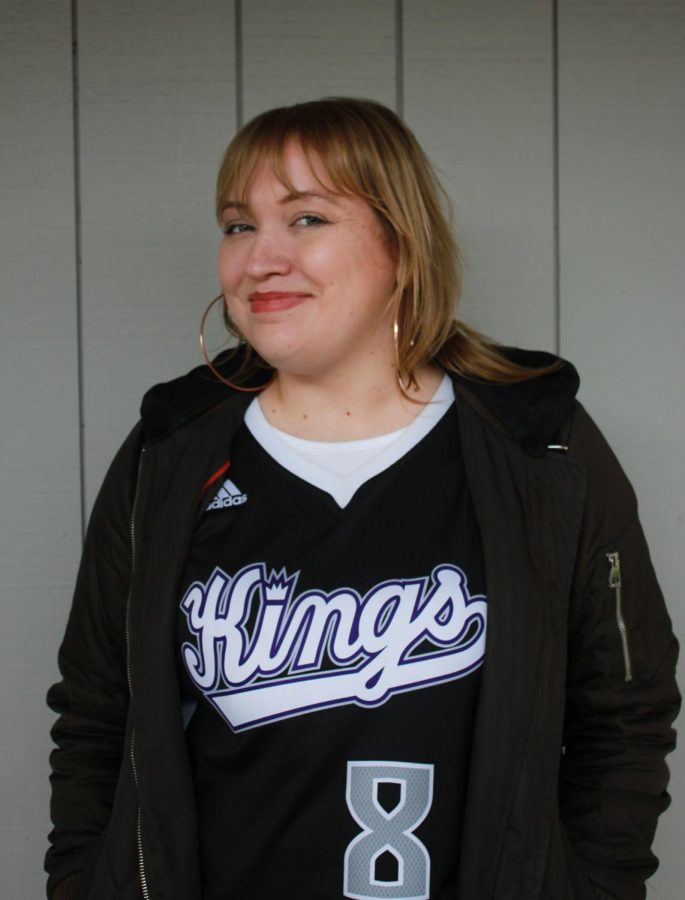Q&A with special education teacher Courtney Carlomagno
The Oracle: What type of courses and students do you primarily teach at Gunn?
Courtney Carlomagno: I currently teach Conceptual Physics with [Science De-partment Instructional Supervisor] Laurie Pennington. Ever since we became a full- inclusion school, all of our graduation requirement classes, or the majority of them, are co-taught. There is a special ed and general ed teacher in the room so that all students can get a high school diploma. I also teach a support class known as Academic Planning. Previously, I ran an academic communication program which supported students on the autism spectrum with improving their social skills.
TO: How long have you been a special ed teacher?
CC: This is my sixth year as a teacher at Gunn, and I was actually a special ed aide at Gunn for two years before becoming a teacher.
TO: When did you know you wanted to be a special ed teacher?
CC: I originally thought I was going to be a preschool teacher. I did that for about a year and a half in college and right out of college, but that became mostly ‘you nap them, you feed them and you change them.’ I got really bored of that and so then I decided to try working with a different age group. I applied for an aide position at Gunn and then I ended up just loving being able to support different kids and helping them meet their goals.
TO: What’s the most challenging part of teaching special ed?
CC: I think the most challenging part is just maintaining patience, so being patient with all different stakeholders.
TO: What is something about special education that you think people should know?
CC: I think a common misconception about special education is that students who need special education are different; it’s more that they need different paths of support to help them be successful. All of our students on campus, special ed or not, are highly capable, and it’s just about figuring the strategy they need to use to figure out that information.
TO: What’s your favorite part of teaching special ed?
CC: I love the fact that I get to see a lot of the kids for all four years, so I get to witness a lot of growth and really create a long-lasting relationship with them. I have a ton of students who I’m still in touch with, tons of students who I take pictures with at graduation and it’s really great to see all their progress.
TO: What does special education mean to you?
CC: To me, special education means leveling the playing field. I love that picture of the three kids looking out over thebaseball diamond, and they are alldifferent heights, but they get the right amount of boxes so they are all on the same eye level. So special ed is making sure everyone has what they need to be successful.
Your donation will support the student journalists of Henry M. Gunn High School. Your contribution will allow us to purchase equipment and cover our annual website hosting costs.


